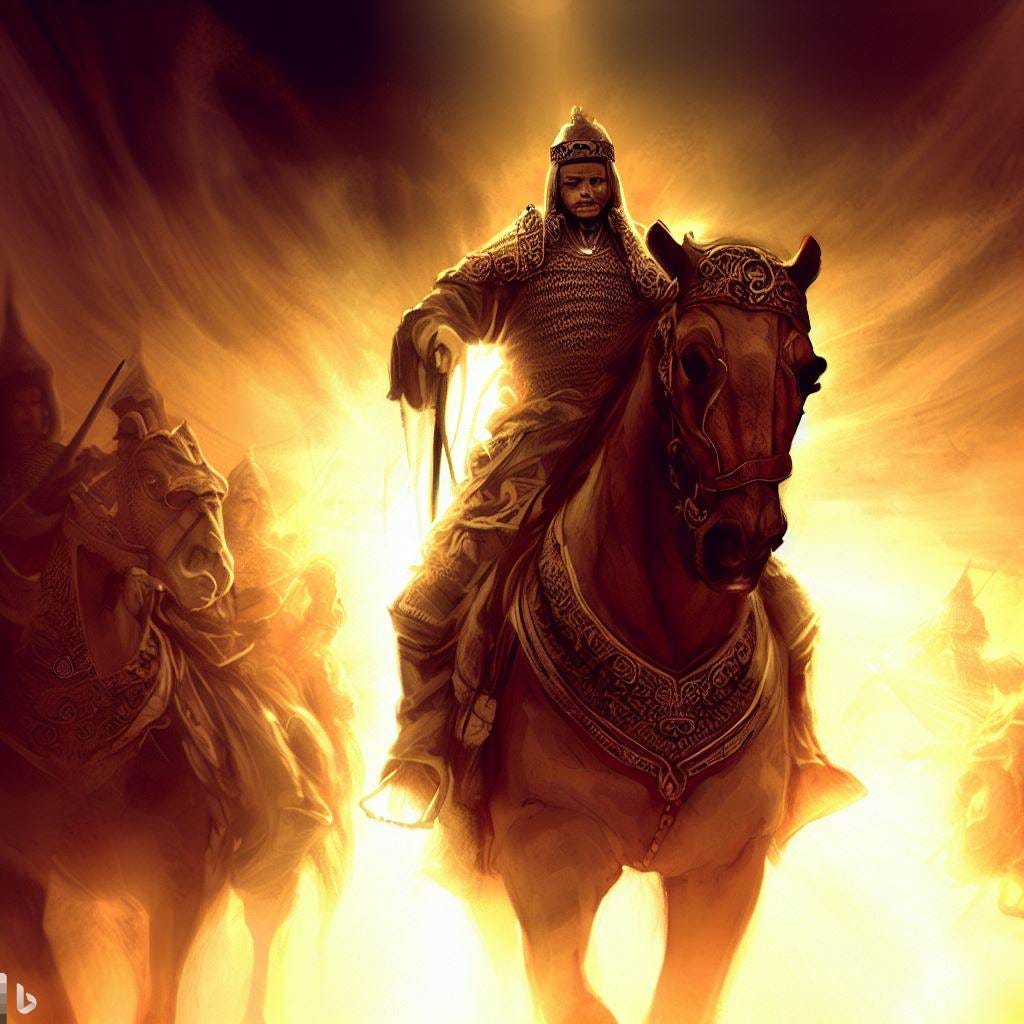Hold onto your ushankas, history enthusiasts, as we embark on a thrilling journey through the untold story of the Mongol-Tatars. These intrepid nomads, known for their military prowess and cultural flair, played a crucial role in shaping modern-day Russia. So, tighten your saddle straps and prepare to be captivated by the rich history, vibrant culture, and lasting legacy of the Mongol-Tatars.
Origins: From the Steppes to the Spotlight:
The Mongol-Tatars emerged from the vast Eurasian steppe, where the Mongols and Tatars united under the iron rule of Genghis Khan. These fierce warriors, skilled in the art of horseback archery, carved out the largest contiguous land empire in history, stretching from Asia to Eastern Europe.
A Tale of Two Tribes:
While the Mongols and Tatars shared many cultural and linguistic traits, they were distinct tribes with their own unique traditions. The etymology of the word "Mongol" likely comes from the Mongolian word "Monggol," meaning "brave" or "eternal." Meanwhile, the origins of the word "Tatar" are more obscure, possibly stemming from the Turkic word "tatar," meaning "archer" or "mounted courier."
Cultural Tapestry:
The Mongol-Tatars were not just fearsome conquerors; they were also renowned for their vibrant culture. The nomadic lifestyle shaped their art, music, and cuisine, with a focus on practicality and portability. Think camel-fur coats, throat singing, and a hearty diet of kumis and beshbarmak. Who knew conquering could be so fashionable?
The Mongol-Tatar Yoke: A Crucible of Change:
The Mongol-Tatars' domination of Russia, known as the Mongol-Tatar Yoke, had a profound impact on the nation's development. For nearly three centuries, the Mongol-Tatars imposed their rule on the Russian principalities, leading to political, economic, and cultural changes. While the Yoke was undoubtedly oppressive, it also laid the groundwork for the unification of the Russian lands and the rise of Moscow as a political powerhouse.
Influencing Modern Russia:
The Mongol-Tatars' legacy in modern Russia is far-reaching, affecting everything from politics and architecture to cuisine and fashion. They introduced new technologies, such as the stirrup and the composite bow, as well as the concept of a centralized administration. The Mongol-Tatars even left their mark on the Russian language, with words like "karaul" (guard post) and "dengi" (money) stemming from Turkic roots.
Conclusion:
The Mongol-Tatars' story is a fascinating tale of nomadic warriors who transcended their conquering reputation to leave a lasting impact on Russian history and culture. Their influence can still be felt in modern Russia, from politics and language to cuisine and fashion. So, the next time you sip a glass of kumis or admire the Moscow Kremlin's imposing walls, raise a toast to the Mongol-Tatars, the unsung trailblazers who shaped the Russia we know today.




